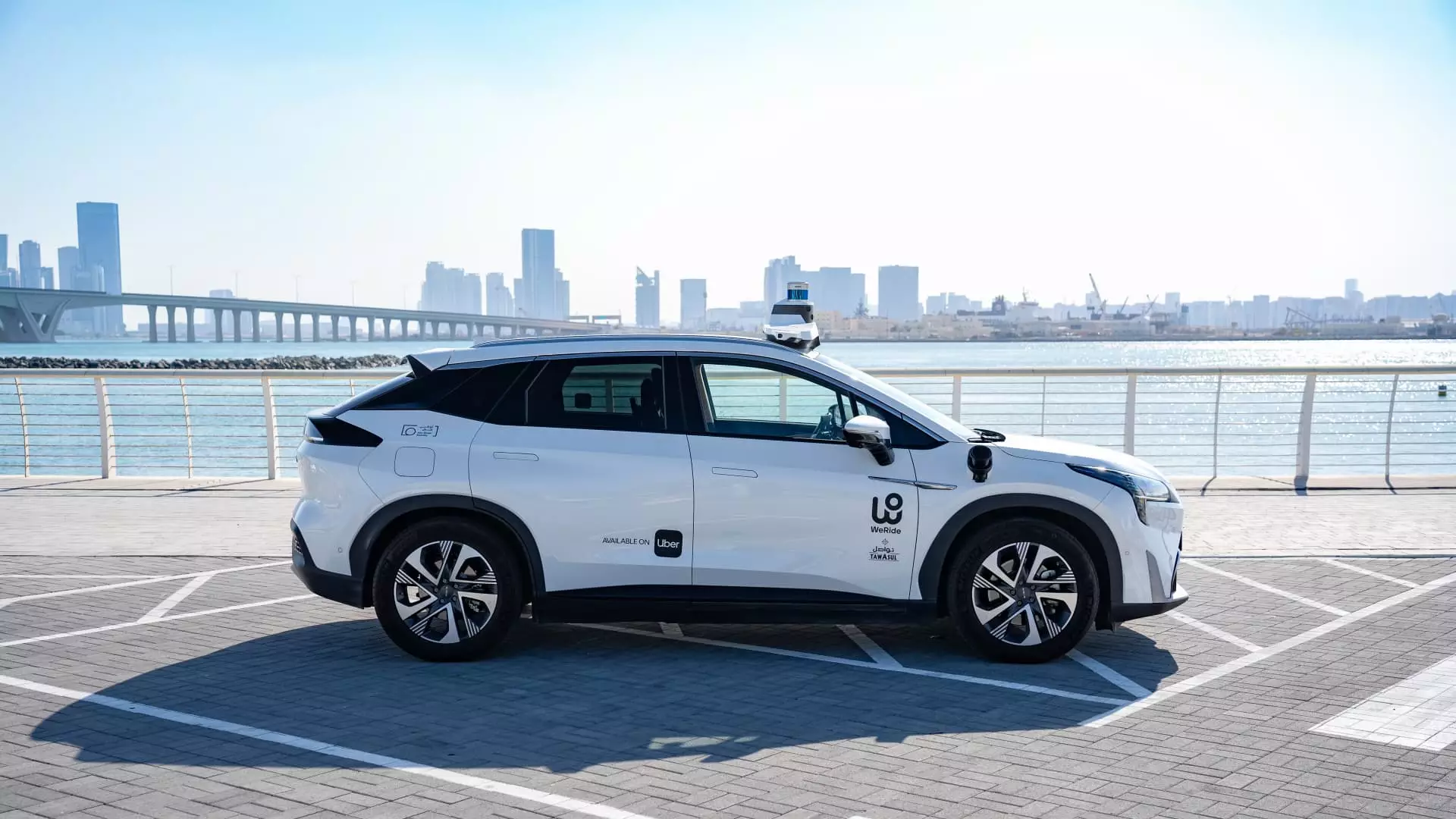In a groundbreaking move, Uber has announced a collaboration with Chinese autonomous vehicle company WeRide to launch autonomous ride-hailing services in Abu Dhabi. This partnership signifies a pivotal moment in the evolution of urban mobility, marking the beginning of robotaxi services that aim to reshape the landscape of transportation. The initial rollout will incorporate a human driver in each WeRide robotaxi, thus prioritizing passenger and pedestrian safety while the technology undergoes further validation.
The robotaxis will operate on specific routes, including connections between Saadiyat Island and Yas Island, along with services from Zayed International Airport. This strategic choice of location not only underscores the significance of tourism in the region but also showcases Abu Dhabi as a testing ground for cutting-edge mobility solutions. Furthermore, the companies aspire to transition to fully autonomous operations by 2025, allowing riders to experience a driverless journey while potentially setting new standards in the transportation industry.
WeRide’s reputation as a leading autonomous vehicle innovator complements Uber’s expansive reach in the ride-hailing market. With a strong presence in multiple countries, including the U.S., China, and Singapore, WeRide brings a wealth of experience to this partnership. Uber’s choice to align with a company that is publicly traded and possesses the necessary regulatory permissions for driverless vehicle operations indicates a calculated move towards scaling autonomous services, which can significantly enhance operational efficiency.
Strategic Growth in the Autonomous Sector
During Uber’s recent earnings call, CEO Dara Khosrowshahi highlighted the company’s ongoing endeavor to deepen its involvement in the autonomous vehicle arena, emphasizing partnerships with numerous AV companies. This strategy showcases Uber’s commitment to remaining at the forefront of the mobility sector, even as it navigates competition from established players such as Waymo. Analyst James Cordwell from Redburn Atlantic hinted at both potential challenges and opportunities, indicating that while partnerships can strengthen Uber’s position, the competitive landscape is becoming increasingly complex.
The launch of autonomous rides in Abu Dhabi is significant not only for Uber and WeRide but also for the future of urban transportation in general. By venturing into markets where regulatory frameworks are adapting to facilitate autonomous technologies, these companies are positioning themselves to capture an expanding consumer base. According to Cordwell, the market potential for autonomous rides is vast, and Uber is strategically poised to act as a key aggregator for various AV providers.
As Uber partners with WeRide to steer the future of autonomous transportation, the implications of this initiative could reverberate across global markets. With planned expansions into fully driverless operations by 2025, the Abu Dhabi pilot not only explores the technical feasibility of robotaxis but also addresses broader societal changes in mobility habits. The success or failure of this venture could serve as a crucial barometer for how faster developments in autonomous technology will influence urban infrastructure and commuting experiences worldwide.


Leave a Reply